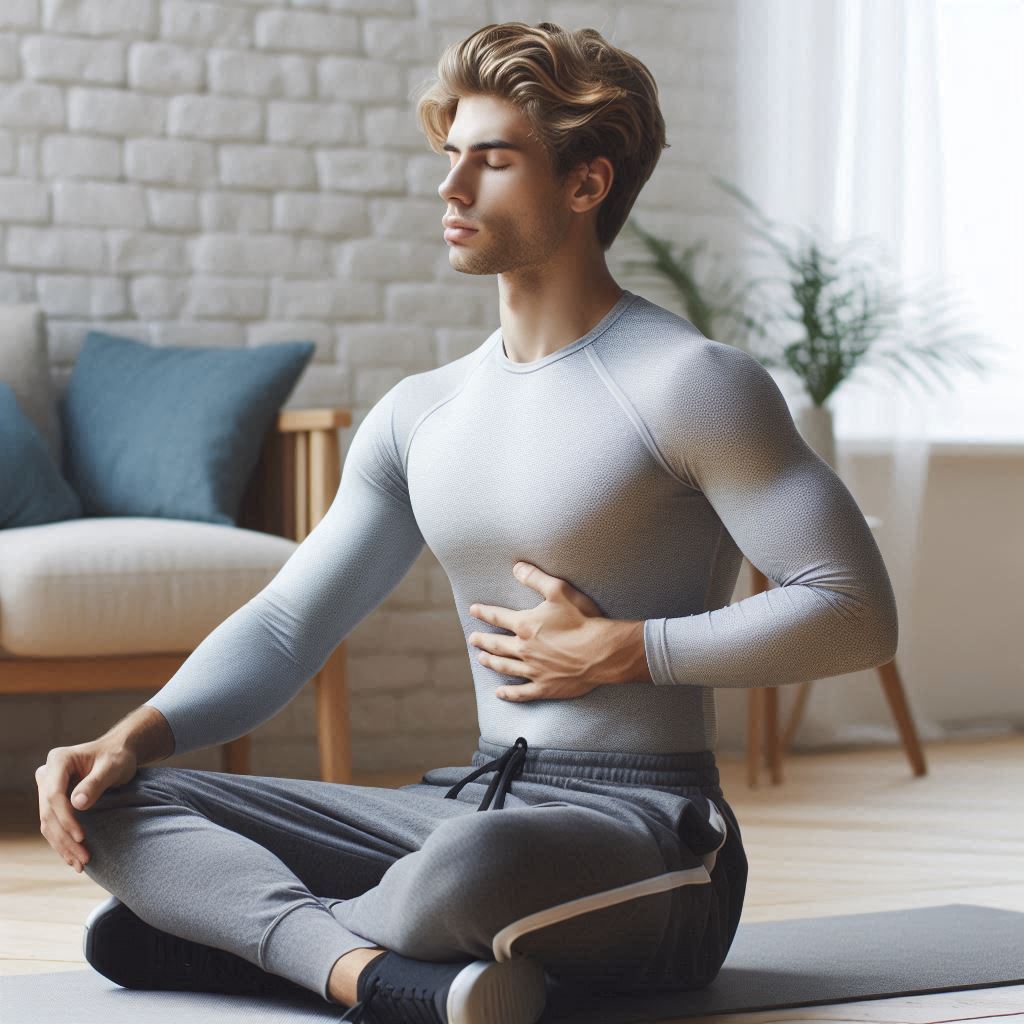 Natural Ways to Overcome Anxiety
Natural Ways to Overcome Anxiety
Anxiety, a common mental health condition, affects millions of people worldwide. According to the Anxiety and Depression Association of America (ADAA), anxiety disorders are the most prevalent mental illness in the U.S., impacting 40 million adults aged 18 and older, which is about 18.1% of the population each year. While medication and therapy are effective treatments, many people seek natural remedies to complement these conventional methods. This article explores natural ways to overcome anxiety.
Herbal Remedies

Herbal remedies have been used for centuries to treat various ailments, including anxiety. Here are some of the most effective herbs for anxiety relief:
– Chamomile: A study published in the Journal of Clinical Psychopharmacology found that chamomile extract reduced symptoms of generalized anxiety disorder (GAD) in participants. Chamomile tea is a popular way to consume this herb and can be a calming bedtime ritual.
– Lavender: Lavender aromatherapy has been shown to decrease anxiety levels in several studies. In one study, participants who inhaled lavender essential oil reported a significant reduction in anxiety levels compared to those who inhaled a placebo.
– Valerian Root: Known for its sedative properties, valerian root is often used to treat insomnia. A review of studies published in the National Library of Medicine found that valerian root can help reduce anxiety and improve sleep quality.
Diet and Nutrition

What you eat can have a profound impact on your mental health. Incorporating certain nutrients into your diet can help reduce anxiety symptoms:
– Omega-3 Fatty Acids: A meta-analysis published in JAMA Network Open found that omega-3 supplementation significantly reduced anxiety symptoms in clinical populations. Foods rich in omega-3s include fatty fish like salmon, walnuts, and flaxseeds.
– Probiotics: Gut health is closely linked to mental health, and probiotics play a crucial role in maintaining a healthy gut microbiome. A study in Psychiatry Research found that participants who consumed probiotics reported lower levels of anxiety and depression.
– Magnesium: Magnesium deficiency has been linked to increased anxiety. A study in the journal Nutrients found that magnesium supplementation can reduce anxiety symptoms. Foods high in magnesium include leafy greens, nuts, seeds, and whole grains.
Exercise

Regular physical activity is one of the most effective natural remedies for anxiety. Exercise releases endorphins, which are natural mood lifters. Here are some types of exercise that can help:
– Aerobic Exercise: Activities like running, cycling, and swimming can significantly reduce anxiety. A study published in the journal Depression and Anxiety found that aerobic exercise was as effective as medication in reducing symptoms of anxiety and depression.
– Mind-Body Exercises: Practices such as yoga and tai chi combine physical movement with mindfulness and breath control. A review in the journal Frontiers in Psychiatry found that yoga can reduce anxiety and improve overall well-being.
Mindfulness and Meditation
Mindfulness and meditation practices are powerful tools for managing anxiety. They help you stay present and reduce the tendency to overthink. Here are some effective techniques:
– Mindfulness Meditation: A meta-analysis in the journal Clinical Psychology Review found that mindfulness meditation significantly reduces anxiety. Practicing mindfulness involves focusing on the present moment and accepting it without judgment.
Find Your Calm Instantly – See How InnaPeace™ Can Enhance Your Life!
– Deep Breathing Exercises: Deep breathing can activate the parasympathetic nervous system, promoting relaxation. Techniques such as diaphragmatic breathing, where you breathe deeply into your abdomen, can quickly reduce anxiety symptoms.
Lifestyle Changes
Making certain lifestyle changes can have a significant impact on your anxiety levels:
– Adequate Sleep: Poor sleep is both a cause and a symptom of anxiety. The National Sleep Foundation recommends 7-9 hours of sleep per night for adults. Improving your sleep hygiene, such as maintaining a regular sleep schedule and creating a restful environment, can help reduce anxiety.
– Reduce Caffeine and Alcohol: Both caffeine and alcohol can exacerbate anxiety. Reducing or eliminating these substances from your diet can help stabilize your mood. A study published in the journal Alcoholism: Clinical and Experimental Research found that reducing alcohol consumption can lead to a decrease in anxiety symptoms.
Social Connections
Strong social connections can provide emotional support and reduce feelings of isolation, which can help manage anxiety:
– Support Networks: Engaging with friends and family or joining support groups can provide a sense of belonging and reduce anxiety. A study in the journal Social Psychiatry and Psychiatric Epidemiology found that strong social support is associated with lower levels of anxiety and depression.
Alternative Therapies

Alternative therapies can offer additional ways to manage anxiety:
– Acupuncture: This traditional Chinese medicine practice involves inserting thin needles into specific points on the body. A review in the journal Medical Acupuncture found that acupuncture can help reduce anxiety by balancing the body’s energy flow.
– Massage Therapy: Regular massages can lower cortisol levels, a stress hormone, and increase feelings of well-being. A study in the National Library of Medicine found that massage therapy significantly reduced symptoms of anxiety and depression.
Hobbies and Activities
Engaging in hobbies and activities that you enjoy can provide a distraction from anxious thoughts and improve your mood:
– Creative Outlets: Activities such as painting, music, or gardening can be therapeutic. A study in the Journal of Positive Psychology found that engaging in creative activities can increase overall well-being and reduce anxiety.
Natural Ways Control Anxiety
Controlling anxiety naturally involves a holistic approach that addresses both the mind and body. One effective method is engaging in regular physical exercise. Research shows that consistent physical activity can reduce anxiety levels by up to 20%. Activities such as dancing, hiking, or playing sports not only releases endorphins, which are natural mood lifters, but also provide a healthy distraction from anxious thoughts. Additionally, setting fitness goals and achieving them can boost self-confidence, further mitigating anxiety symptoms.
Dietary adjustments play a crucial role in controlling anxiety. Incorporating anti-inflammatory foods such as berries, turmeric, and green leafy vegetables can help stabilize mood and reduce inflammation in the body, which is often linked to anxiety. Furthermore, staying hydrated and limiting sugar and processed foods can prevent blood sugar spikes and crashes that can trigger anxiety. Consuming a balanced diet rich in whole foods ensures that the brain gets the necessary nutrients to function optimally and manage stress effectively.
Another powerful tool is practicing mindfulness and gratitude. Mindfulness techniques, such as mindful eating or mindful walking, can help ground you in the present moment, reducing the tendency to ruminate on past or future worries. Keeping a gratitude journal, where you write down things daily that you are thankful for, can shift your focus from the negative to the positive aspects of your life. Studies have shown that regular gratitude practice can lead to long-term reductions in anxiety and improve overall mental health.
Social engagement is also essential for controlling anxiety. Regular interaction with friends, family, or community groups can provide emotional support and reduce feelings of loneliness. Volunteering or participating in group activities can create a sense of purpose and belonging, which are vital for mental well-being. Social connections have been shown to buffer against stress and promote resilience, helping individuals manage anxiety more effectively.
Lastly, incorporating relaxation techniques into your daily routine can significantly control anxiety levels. Techniques such as progressive muscle relaxation, guided imagery, or biofeedback can help manage the physical symptoms of anxiety. These practices teach the body to relax and the mind to focus, breaking the cycle of chronic stress. Regular practice of these techniques can lead to sustained reductions in anxiety and improvements in overall quality of life. 
Incorporating these natural strategies into your daily routine can empower you to control anxiety effectively, leading to a more balanced and peaceful life. By adopting a holistic approach that includes physical exercise, dietary adjustments, mindfulness, social engagement, and relaxation techniques, you can take charge of your mental health and reduce anxiety naturally.
Consult a Healthcare Provider
Anxiety is a common but manageable condition. Incorporating these natural remedies into your daily routine can help alleviate anxiety and improve your overall quality of life. Remember, it’s essential to consult with a healthcare provider before starting any new treatment, especially if you are currently taking medication for anxiety. By embracing these holistic approaches, you can achieve a more balanced and peaceful life.
More References:
- https://www.healthline.com/
- https://www.medicalnewstoday.com/
- https://www.webmd.com/
- https://www.health.com/

